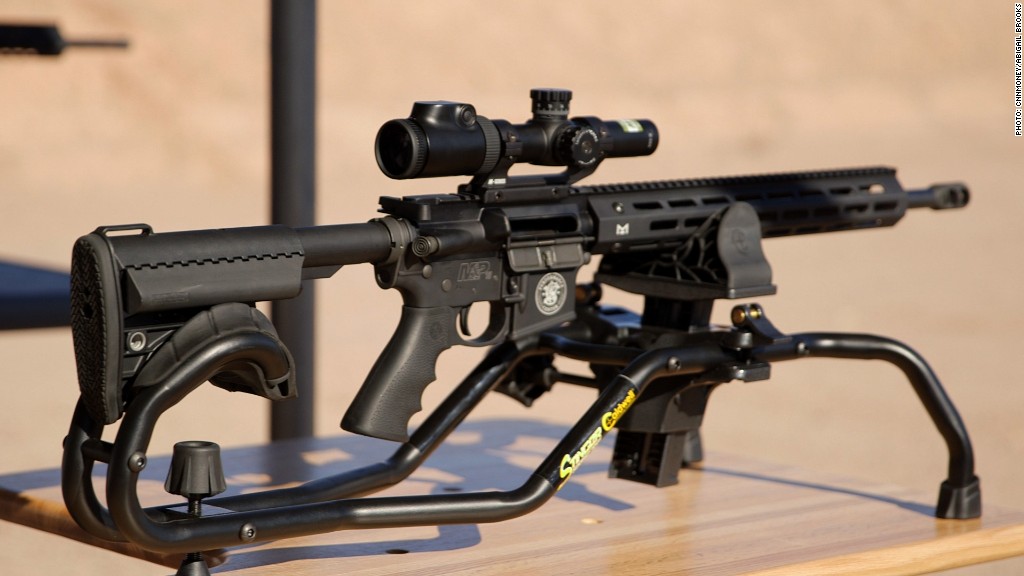
Gunmakers are coming to grips with a new reality after Parkland.
The stock of American Outdoor Brands (AOBC), the owner of Smith & Wesson, tumbled 25% in February and is trading at its lowest level in almost five years. Sturm Ruger (RGR) fell 19% to a three-year low. Vista Outdoor (VSTO), which makes guns and ammunition, is down 12% since the school shooting two weeks ago.
Wall Street investors backing the companies are asking questions. More than a dozen companies have cut ties with the NRA. And Dick's Sporting Goods, Walmart and Fred Meyer, a unit of Kroger (KR), are limiting gun purchases from stores.
Related: Dick's Sporting Goods will stop selling assault-style rifles
For gun manufacturers, declining stock prices reflect a change in a decade-long operating model.
As recently as the Las Vegas shooting last October, mass shootings provided a jolt to their stocks. Investors bet that Americans would rush to purchase weapons because of the prospect of tighter gun restrictions.
That was especially true before last year. President Obama and then Hillary Clinton, the favorite to win the White House in 2016, heightened gun owners' fears of new legislation and drove stock prices higher.
Obama was a "clarion call to the gun industry," said Brian Rafn, an analyst at Morgan Dempsey. Manufacturers doubled and tripled production during the Obama administration to meet rising demand, according to federal data.
But with President Trump in the White House and Republicans running Congress, the gun industry was left without a bogeyman. Mass shootings during the Trump presidency in Las Vegas and in Sutherland Springs, Texas, did not cause buying sprees.
Related: A cloud hangs over the gun industry
"Fear sells in the gun industry. One is fear of crime and terrorism. The other is the fear of regulatory restrictions," said John Donahue, a professor at Stanford Law School. "The election of Trump has taken out some of the steam of those messages."
Sturm Ruger's sales fell 22% last year. Remington, one of the country's oldest gunmakers, is planning to file for bankruptcy.
Now the companies have a different problem: The gun industry is seen as toxic after the shooting in Florida. BlackRock, the investment company, says it is working with customers who want to keep gun companies out of their portfolios.
And some investors see "an opportunity to go after a wounded target," Rafn said.
Rafn, who is bullish on the gun industry's long-term prospects, said the market is "a little bit exhausted." He compared it to a football team that's had winning seasons and is starting to slow down.
In addition, manufacturers are struggling to innovate, Donahue said. Producers saturated the market with assault weapons after Congress lifted the ban on assault rifles in 2004, and they made more small guns after states expanded concealed-carry laws.
A new type of weapon or exotic accessories could reverse last year's trend, Rafn said.
Timothy Lytton, an associate dean at Georgia State University's College of Law, said it's too early to tell whether Parkland will create lasting damage to gun sellers. He said it will depend on how gun owners react in the coming months.
"Consumer demand has historically spiked when state legislatures begin to react to mass shootings by proposing stricter controls on sales," Lytton said. "Consumer markets are what drive the business models of the companies."
— CNN's Chris Isidore and Aaron Smith contributed to this report.
